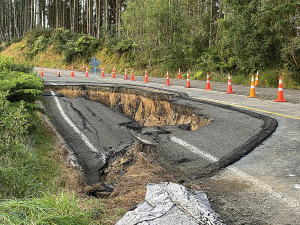OPINION: As the New Year kicks off, there is no doubt the new Government has a lot on its agenda.
However, a key priority for many rural communities around the country –struggling with pothole-riddled roads, run-down bridges and never-ending slips – is the crumbling transport infrastructure throughout region New Zealand.
As Federated Farmers points out, for the agriculture and horticulture sectors rural highways, local roads and bridges are critical to getting product to processors and markets in a timely manner.
The farming lobby also adds that in most of rural NZ, roads these are the access lifelines for farming families, getting to schools, suppliers and other services.
It is true that the newly elected Government has a big workload on its plate and a limited budget. However, if last year’s devastating Cyclone Gabrielle taught us anything, it is the importance and the vulnerability of transport infrastructure in regional NZ.
So far, the new Government has outlined its plans for investing in ‘roads of national significance’. While this programme is important, there is concern in rural areas that there won’t be enough funding available for provincial state highways and local road renewal and maintenance.
Federated Farmers points out that, during the election campaign, National’s transport spokesperson Simeon Brown – now the new Minister for both Transport and Local Government – pledged his party would establish a $500 million Pothole Repair Fund to “urgently address the shocking state of our local roads and state highways”.
However, there’s no mention of that fund in National’s coalition agreements with ACT and NZ First.
In this issue of Rural News, Rural Communities Minister and NZ First MP Mark Patterson says roading infrastructure is really important to rural communities.
He adds that just repairing the roads is taking the problem backwards, and there is the bigger picture with the main connectivity. All good words, but let’s see what he and his coalition partners can deliver.
The rural sector relies on good transport access. They are in ‘wait and see mode’ for the new Government’s plans in this area.
The time for talk is over and the need for serious investment is now. Let’s see what the new Government delivers. Rural NZ is watching.



















